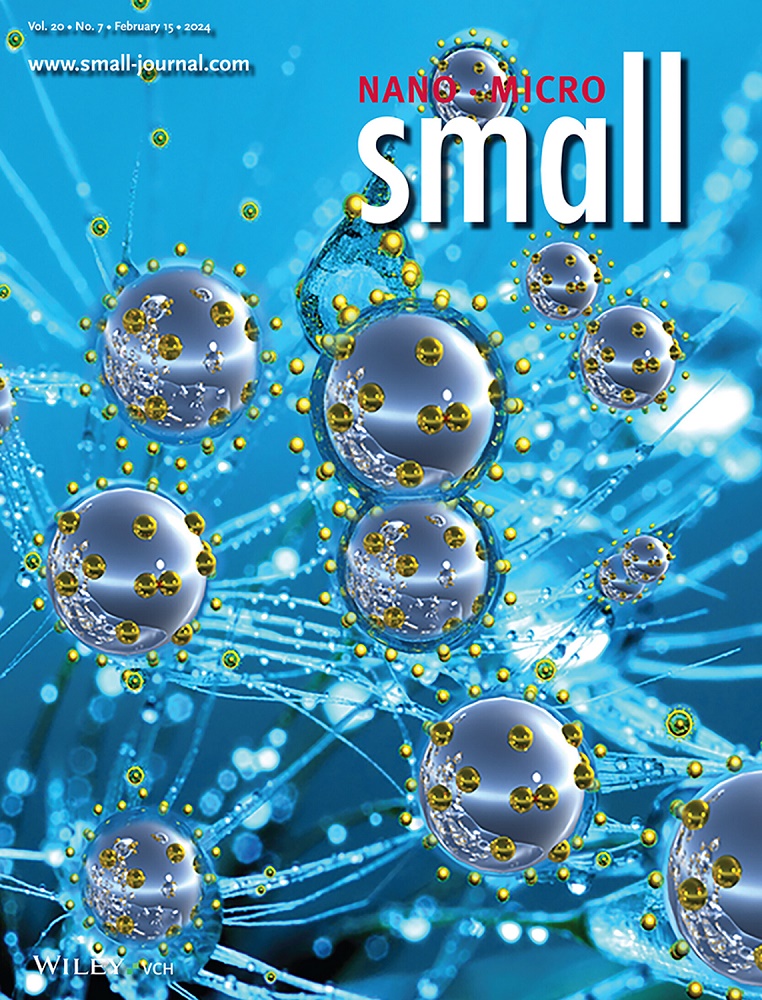Targeting Melatonin to Mitochondria Mitigates Castration‐Resistant Prostate Cancer by Inducing Pyroptosis
IF 13
2区 材料科学
Q1 CHEMISTRY, MULTIDISCIPLINARY
引用次数: 0
Abstract
Prostate cancer frequently progresses to castration‐resistant prostate cancer (CRPC) following androgen deprivation therapy, presenting a significant clinical challenge. Targeting tumor metabolism, particularly mitochondrial pathways, offers a promising strategy for overcoming CRPC. The modification of melatonin (Mel) to a triphenylphosphonium (TPP) cation‐targeted mitochondria–melatonin (Mito–Mel) significantly increases its potency by over 1000‐fold. Mito–Mel selectively targets mitochondria, enhancing reactive oxygen species (ROS) generation and causing mitochondrial membrane potential disruption. This leads to the inhibition of mitochondrial respiration including the tricarboxylic acid (TCA) cycle and oxidative phosphorylation (OXPHOS), which, in turn, suppresses CRPC survival metabolic adaptations, such as glycolysis. In vitro and in vivo experiments reveal for the first time that natural small molecule compound with mitochondrial targeting via TPP exhibits excellent anticancer efficacy by inducing tumor cellular pyroptosis and facilitating the immune response, underlining the encouraging promise of this strategy for the effective treatment of CRPC.褪黑素靶向线粒体可通过诱导前列腺癌焦亡减轻去势抵抗性前列腺癌
前列腺癌在雄激素剥夺治疗后经常发展为去势抵抗性前列腺癌(CRPC),这是一个重大的临床挑战。靶向肿瘤代谢,特别是线粒体途径,为克服CRPC提供了一个有希望的策略。将褪黑素(Mel)修饰为三苯基膦(TPP)阳离子靶向线粒体褪黑素(Mito-Mel),其效力显著提高1000倍以上。Mito-Mel选择性靶向线粒体,增强活性氧(ROS)的产生,并导致线粒体膜的潜在破坏。这导致线粒体呼吸抑制,包括三羧酸(TCA)循环和氧化磷酸化(OXPHOS),这反过来又抑制CRPC生存代谢适应,如糖酵解。体外和体内实验首次揭示了通过TPP介导线粒体靶向的天然小分子化合物通过诱导肿瘤细胞焦亡和促进免疫应答而表现出优异的抗癌效果,强调了该策略有效治疗CRPC的令人鼓舞的前景。
本文章由计算机程序翻译,如有差异,请以英文原文为准。
求助全文
约1分钟内获得全文
求助全文
来源期刊

Small
工程技术-材料科学:综合
CiteScore
17.70
自引率
3.80%
发文量
1830
审稿时长
2.1 months
期刊介绍:
Small serves as an exceptional platform for both experimental and theoretical studies in fundamental and applied interdisciplinary research at the nano- and microscale. The journal offers a compelling mix of peer-reviewed Research Articles, Reviews, Perspectives, and Comments.
With a remarkable 2022 Journal Impact Factor of 13.3 (Journal Citation Reports from Clarivate Analytics, 2023), Small remains among the top multidisciplinary journals, covering a wide range of topics at the interface of materials science, chemistry, physics, engineering, medicine, and biology.
Small's readership includes biochemists, biologists, biomedical scientists, chemists, engineers, information technologists, materials scientists, physicists, and theoreticians alike.
 求助内容:
求助内容: 应助结果提醒方式:
应助结果提醒方式:


